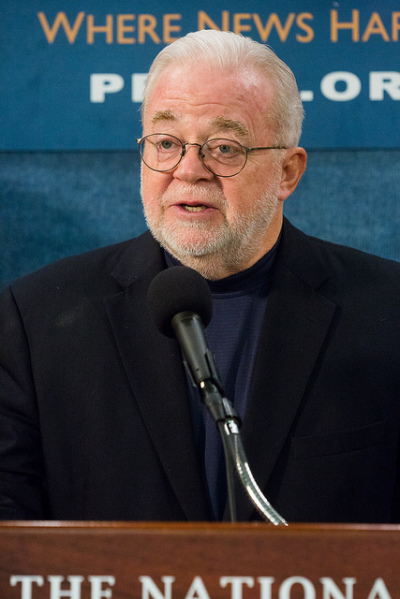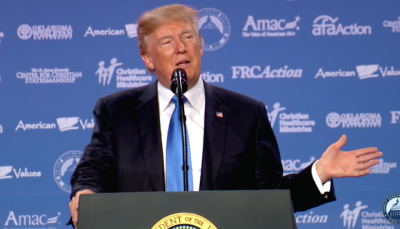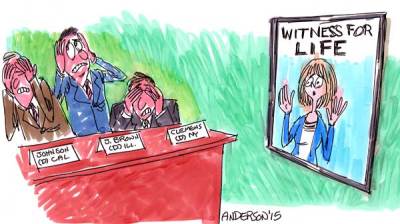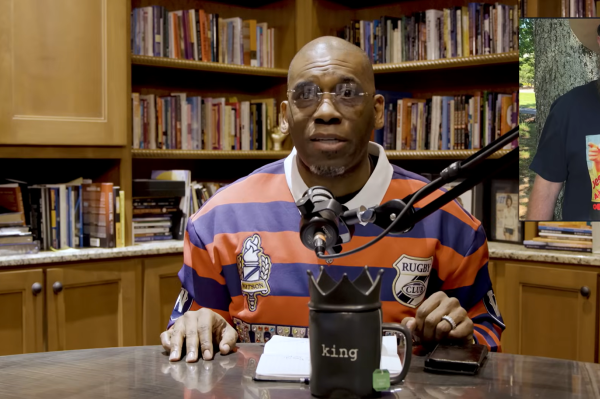Politically Homeless: How Both Parties Are Leaving a Generation of Christians Behind

I feel politically homeless as we enter 2018 — and I know I am not alone. Many Christians are feeling the same as other Christians, especially white evangelicals, have undertaken completely uncritical support for a President who is the antithesis of the Gospel of Jesus Christ — endangering the reputation of Christianity, especially among a new generation.
Of course, the two political parties are not morally equivalent; it makes a great difference how we vote, as we will have the opportunity to do later this year. The Republican Party's political sellout to Donald Trump — and the lack of a clear moral alternative by the Democrats many people of faith are excited to support — leaves many of us feeling politically homeless.
Republican leadership has sold its party's soul to a bad, amoral, childish and dangerous man. Most of my Republican friends agree. Trump was elected President by anti-establishment backlash and in a series of political accidents by both parties, many candidates and our electoral system. He has been revealed as an intellectually shallow and a mentally incompetent leader, a person who lacks any moral conscience, an unapologetic promoter of racial bigotry and misogyny, a personality with embarrassing emotional immaturity and alarming instability that threatens disorder in the nation and a leader whose disrespect for the rule of law and our political system of checks and balances can best be described as narcissistic and authoritarian paranoia.
The President of the United States is now a very dangerous threat to American democracy and national security. While there are some Republican commentators and elected officials who have voiced opposition to the President's behavior, the Republican Party has shown itself unable or unwilling to hold him accountable and has, in fact, become a captured party by an aspiring autocrat who is telling the world that he has the biggest nuclear button.

The GOP has disregarded the best values of principled conservatism: fiscal integrity and responsibility, an allegiance to truth and honesty, genuine pro-family values, national security through global engagement, the commitment to opportunity for all, the value of empathy for those in need and the worth and equality of every person under the law. The Republicans have substituted a moral relationship to the presidency for a transactional one, ignoring Trump's consistent incompetence, immorality and hateful divisiveness of the tweeting President. In exchange for economic and environmental regulations and tax cuts that support the greedy demands of their wealthiest donors. All this makes many conservatives with Christian and other moral values feel politically homeless.
The Democratic Party, on the other hand, has lost its historic relationship to working class people around the country, and has indeed become dominated by cultural elites who have little connection to ordinary families and the many pressures on their lives. Democratic Party rhetoric doesn't appeal to the values of many Christians who care most about poverty and racism. For many election cycles, Democratic consultants have replaced the word "poor" with the words "middle class," and the party is no longer perceived as one that cares nearly enough about the needs of people on the margins of life in America. The text from Matthew 25 that draws many Christians into engaging in politics does not say, "As you have done to the middle class, you have done to me." It rather has Jesus saying to us, "As you have done to the least of these, you have done to me." It's a Biblical text many Democratic consultants seem not to have read or have forgotten.
"It was once said that the moral test of government is how that government treats those who are in the dawn of life, the children; those who are in the twilight of life, the elderly; and those who are in the shadows of life, the sick, the needy and the handicapped." Those words from Hubert H. Humphrey would likely not be described as the mission of Democrats today, many of whom are as connected to the Wall Street elites as the Republicans are.
Despite being dependent on African-American voters, the Democratic Party has often taken them for granted instead of courageously addressing the realities of institutionalized racism and by refusing to invest in organizers, mobilizers and candidates in African-American and Latinx communities. Unfortunately, the Democrats are no longer a faith-friendly party. Voters with religious faith are often ignored or even dismissed without serious outreach or respectful dialogue. I have fought religious fundamentalism for most of my life, but the secular fundamentalism that controls much of the left and the Democratic Party at the national level can be equally ideological, irrational and divisive — too often even seeming to attack religion itself.

Moral issues of intrinsic concern to the faith community are often disregarded or disrespected. by Democratic Party orthodoxy, which often takes extreme or overly strident views on issues like abortion. Many of us in the faith community regard abortion as a moral issue and part of a consistent ethic of life and seamless garment of concern for the many threats to human life and dignity. While many of us pro-life Christians don't support the criminalization of often desperate and tragic choices, we find the Democrats even reluctant to make a commitment to reducing abortion by supporting women with health care, nutrition and social services. Many in Democratic leadership don't seem to want to talk about or even being willing to use the word "reduction" as a positive term in relation to abortion.
While you can't resolve an issue as complex as abortion in a couple of paragraphs, the denial of a moral conversation about it within the Democratic Party continues to alienate many people of faith. While a younger generation in the faith community is indeed more welcoming of LGBTQ people than their parents have been, they are not so welcoming of abortion as the Democratic elites seem to be, and the Democratic Party needs to figure that out.
Gratefully, there are Democrats who want a more faith-friendly party and wider inclusion of ideas, but I still hear many progressive Christian women and men feeling that the Democratic Party makes no outreach to them and offers them very little. Elements of the Democrats' richest donor base continue to enforce extreme positions on abortion, not allow serious moral discussions and seem to want to close the party's tent to pro-life Democrats. Similarly, the central importance of marriage, family and parenting for the common good of society is not a central topic in Democratic Party language and policy. Many people of faith are turned away by Democrats' perceived endorsement, whether intentional or by marked silence, of recreational sexuality over covenantal sexuality and an "anything goes" attitude when it comes to sex. Why is the discussion of family values — among every type of family — so absent from conversations on the left when we know it is a part of critical solutions to overcoming issues of poverty? Those voices on the left advocating for strengthening families are seldom heard.
With part of the Christian community putting faith at risk by their idolatrous support of Donald Trump, and other Christians feeling alienated by the other party's dismissal of faith and the moral questions it raises, our nation's moral discourse is in serious trouble. Third parties have not been a successful way forward in the American system of politics. But perhaps a "third way" or better yet a "moral movement" to revive and renew American politics, on both sides of the aisle, is the way forward for people of faith who put the poor and vulnerable, the consistent dignity of human life, strong families and gender equality and the priority of racial and economic justice and peace at the center of their political convictions.
Jim Wallis is president of Sojourners. His new Audible spoken-word series, Jim Wallis In Conversation, is available now, as is his book, America's Original Sin: Racism, White Privilege, and the Bridge to a New America. Follow Jim on Twitter @JimWallis.





















